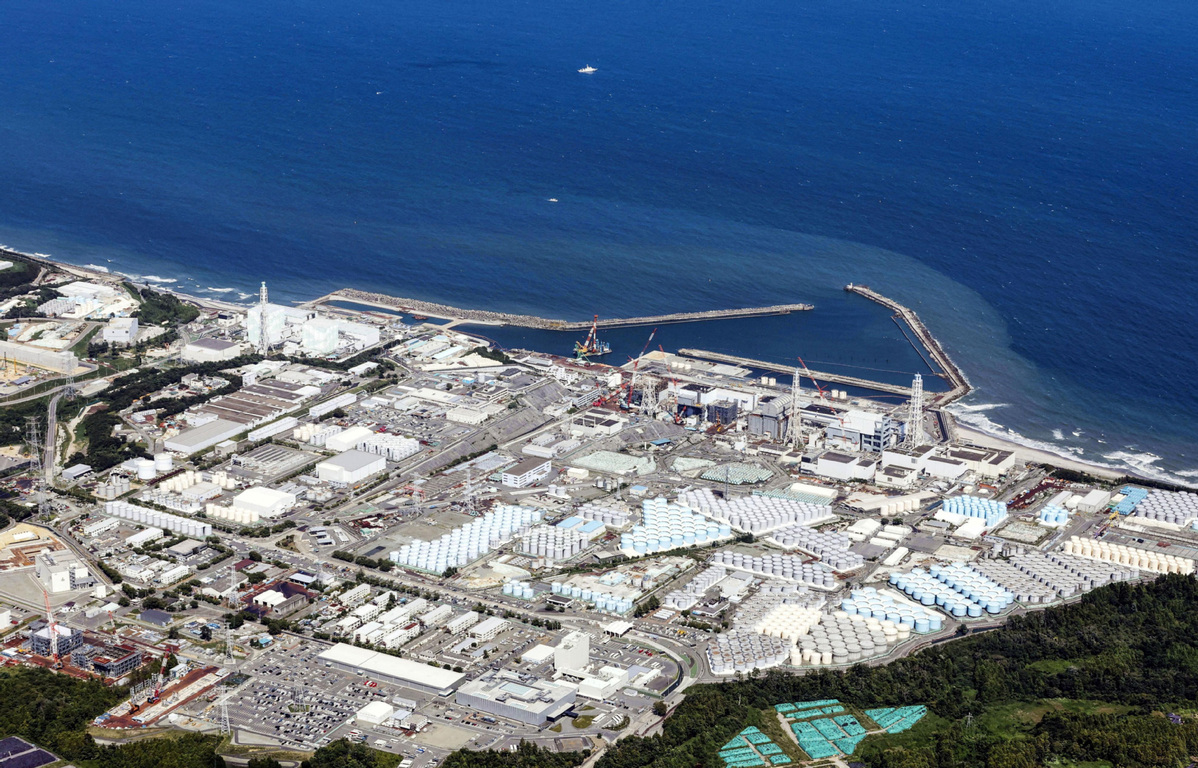
An aerial view shows the Fukushima Daiichi nuclear power plant, in Okuma town, Fukushima prefecture, Japan, Aug 24, 2023. [Photo/Agencies]
Foreign Ministry spokesman Lin Jian said on Monday that no abnormality in the activity concentration of tritium, cesium-134, cesium-137 and strontium-90, was detected in tests over the samples independently collected by the Chinese research institutions in February from the nearby waters of the Fukushima Daiichi nuclear power station.
"As China has repeatedly pointed out, a single test result showing no abnormalities does not guarantee that future tests will also be problem-free," Lin said, noting that China's stance against Japan's discharge of nuclear-contaminated water has never changed.
"We will continue to work with the international community and relevant professional organizations, such as the International Atomic Energy Agency, to urge Japan to earnestly fulfill its commitments and ensure that the discharge remains under international supervision," Lin said.
When asked at a regular news briefing in Beijing whether China plans to expedite negotiations with the Japanese side on the resumption of Japanese seafood imports, the spokesman said that China's General Administration of Customs held a technical exchange with the Japanese side in Beijing on March 12 regarding the safety of Japanese seafood.
According to Lin, the exchange was held on the premise that the Japanese side fulfills its commitments to accepting long-term international monitoring over the discharge of Fukushima nuclear-contaminated water and China's independent sampling and monitoring.
"The Chinese government always puts our people above all else and is firmly committed to safeguarding the food safety of its people," Lin said.